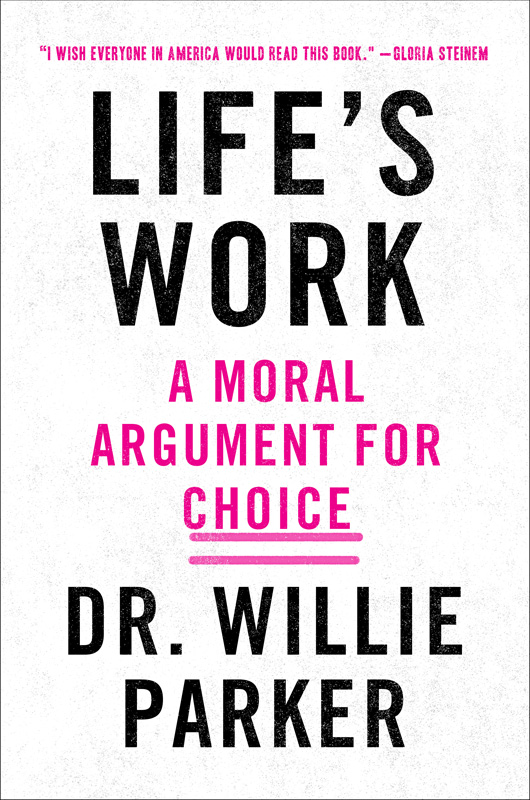Dr. Willie Parker wants America to divest from the patriarchy. In his new book Life’s Work: A Moral Argument for Choice, Dr. Parker argues against allowing sexism, racism and religion set the standard of morals in the abortion debate.
Born into a poor family in the deep south, Dr. Parker quickly became a fundamentalist Christian in his youth. He went on to study medicine, specialized in women’s health care and worked in Hawaii where at first he refused to perform abortions due to his religious beliefs. Then a spiritual awakening led him to realize that in order to show compassion to all women, he must learn to provide safe abortions and advocate for widespread access.
In Life’s Work, Dr. Parker writes about his own journey of reckoning and what he feels is the moral imperative to provide essential health care for women. He said he wrote Life’s Work to counter the religion-fueled language that is used to bolster the anti-choice argument.
“It’s called into question the morality of a woman exercising agency to take care of a process that goes on inside of her body,” he said. “So to that degree my path as a Christian and a women’s health care provider is to provide a counter argument to the notion that there’s something immoral about women taking care of themselves.”
In the book, which weaves memoir with scientific information, he explains how anti-choice advocates co-opted the language of religion to push forward an agenda that strips women of their rights and endangers their lives. Dr. Parker, who found Christianity as a young man and fully embraced it, doesn’t see his religion and his medical practice in conflict.
“Nothing about science competes with my faith identity. What science does, it demythologizes the world, but it doesn’t demystify it,” he said.
In fact, he believes his deep spirituality may help him engage religious people who are conflicted over abortion rights.
“[I’m] finding a different interaction with the same set of beliefs and values,” he said.
His book examines how arguments against abortion also link to race paranoia, with a goal of preserving the white patriarchy.
“It’s very torturous logic and it sounds silly and conspiratorial until you look at the rise of the different movements,” he said. “I would sound silly if we weren’t in the midst of an alt-right white nationalist movement. I would sound silly if we weren’t accommodating extra judicial executions of black men and black women by law enforcement. I would sound silly if we weren’t in the midst of mass incarceration.”
In his practice — an itinerant one, that travels between vulnerable communities in the south — Dr. Parker focuses on empathy for those who seek his services.
“Even in areas that would be thought to be liberal or progressive, there are still ways in which women are denied their basic human rights,” he said. “And part of it is related to, there’s ways in which people know that abortion is necessary, and even though people approve of it, they fail to reject the stigma and shame around it.”
Dr. Parker understood that writing a book about this subject would put him in a potentially dangerous spotlight. “This is me showing up in the literary world in the same way I show up at the clinic,” he said.
He also acknowledges the advantages of being born male in this society, even as an African American, and feels this carries with it a responsibility.
“If you do nothing to combat patriarchy, unless you divest of it, you are personally responsible,” he said. So he speaks out on behalf of women’s health, and practices a medical procedure that puts his life at risk but saves the lives of women.
“Some people pick issues, and sometimes issues pick you,” he said. “This issue picked me.”
Dr. Willie Parker will speak on Sunday at 12:30 p.m. at the Chilmark Community Center.








Comments
Comment policy »